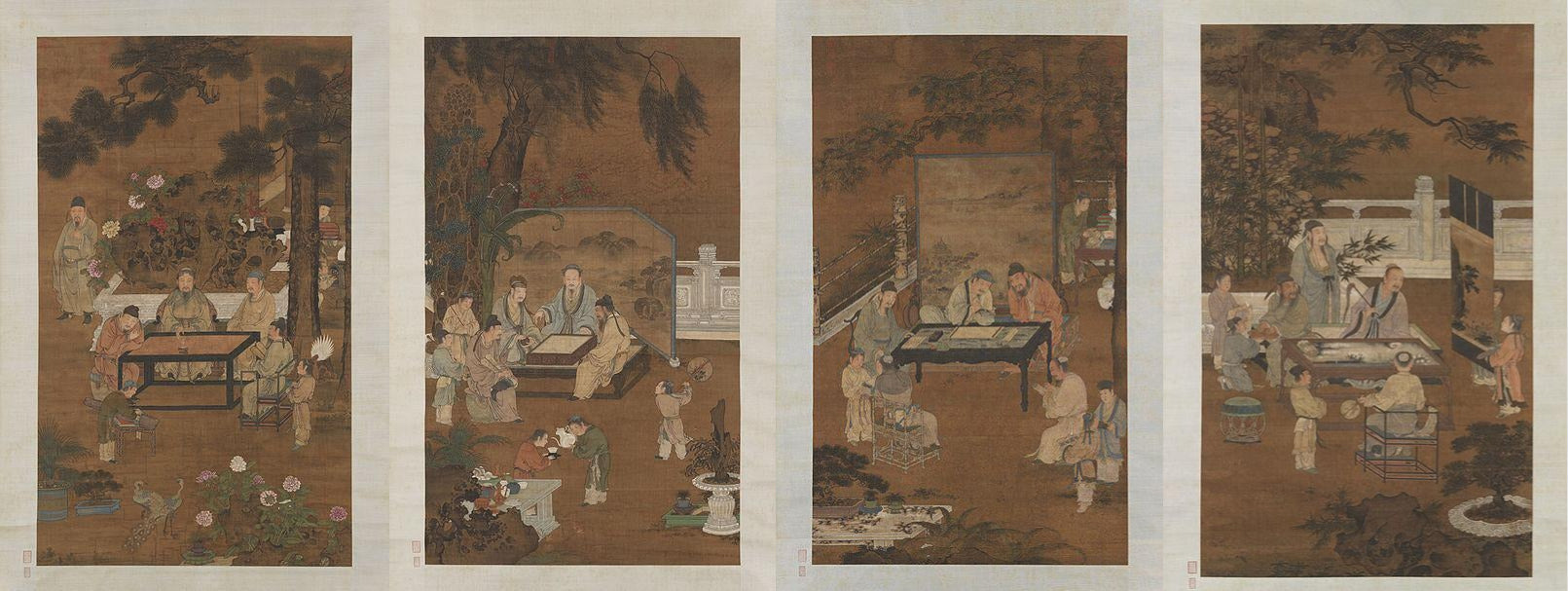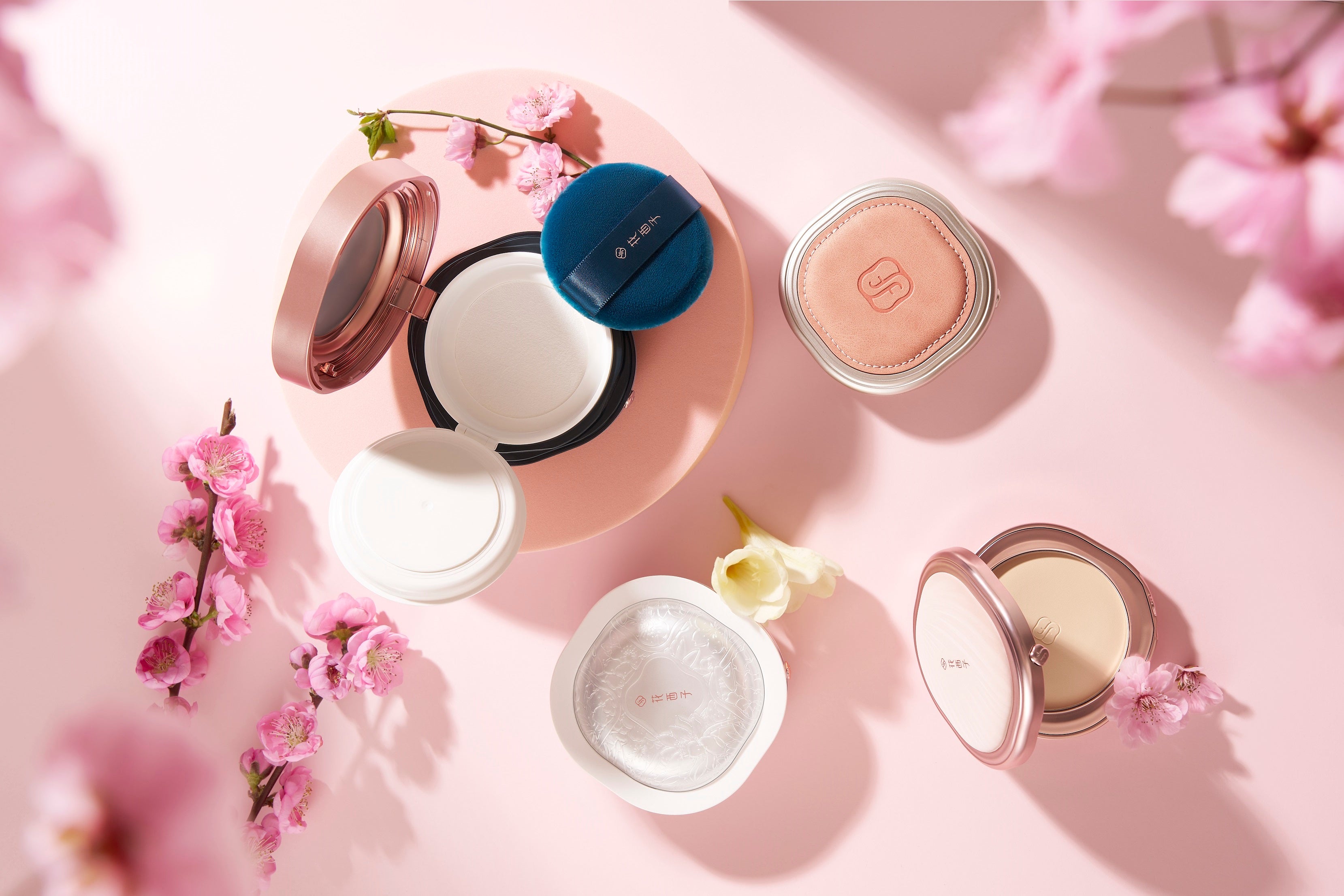
Beauty in Reflection of the Four Chinese Scholar Arts
Muse with us, and set yourself on a journey to China thousands of years back. Strap in for a ride of ancient artistry and slip into the flourishing era of the four Chinese scholar arts - Qín, Qí, Shū, Huà.
Having prevailed through many centuries of rises and falls, the four scholar arts have built themselves pre-eminence as the fundamental criterion for Chinese scholars to appraise their peers' cultured mind and artistic sensibility.




Amidst a landscape where knowledge and art are privy to a few with either enough riches or tenacity to pursue, many royal court members of the Chinese empire were able to obtain their positions by showcasing their mastery of the four arts. The exhibition of such talents attests to the scholar's great self-discipline and morally upright senses that the arts impart.
For those who are not too concerned about status, the four arts are regarded as their alternative means for spiritual pleasure and inner character refinement.
In today's blog, we'll rest our brush in the guidance of the four Chinese scholar arts and be led to explore their domain of originative-editorial beauty.
The Art of Qín - Echoing the Transcendent Timbre of Guqin
Mastering the art of Qín (琴) means mastering the skill to command the sound of Guqin - a traditional seven-stringed instrument of the Chinese. Dating back more than 3000 years, the saga of Guqin has been as rich, and epic tale-laden as its birthplace, growing more integrated and invaluable to Chinese culture and the heritage of humanity with each passing century.

The traveling timbre of Guqin knows no bounds. It rings in tune with a varied array of musical expressions, genres, affairs, and historical times no matter in the past or present. So while the sound of Guqin has become more accessible, many aficionados argue that to encounter the truest beauty of Guqin, it's ideal for the instrument to be accompanied by the echoes of mountainous scenery, mingled with the scent of burning incense and ride on the perfumed air of a prim pine garden.
The Qín-inspired makeup look transfigures this famed material into immaculate graphic lines of Pine Soot Smooth Eyeliner, emulating the strings of the Guqin, and their tender sound soaring along the roaming wind, and scented breeze from an ancient scholar's garden.
Of a kind with the instrument's layered resonance, this makeup design brings excitement in texture and contemplative intrigue, prompting imaginative relation to the Jiao Guqin (the tail-burnt Guqin) with the use of singeing paper adornment.
The Art of Qí - Conquering the Strategic Aim of the Go Game
Qí is a board game now known as Weiqi (圍棋), the literal translation means "surrounding game". The game is popularized in Japan, Korea, and the West as the Go game.

The story of Weiqi goes that during the Spring and Autumn Period of China (770–476 BC), King Yao invented the board game to temper his rebellious son, using the game's practices to hone the child's mind and character, preparing him for his future ascent to the throne.
The layout of winning or losing at Go comes in many variations, rarely one resembles the other, which reflects the player's unique intellect of strategic maneuver and the ability to forecast the opponent's grand scheme.
The beauty design influenced by Qí features spherical details, imitating the game's stones as the focal point, with black and white pigments from the Floral Engraving Phoenix Makeup Palette (Gold Brown edition) and Luodai Floral Eyebrow Define Pencil (Grey) in a seemingly spontaneous arrangement. A look that flaunts nuance artistry, and methodical maneuver like Qi's praised skills.
The Art of Shū - Flowing Tenaciously and Fluidly like the Brush of Chinese Calligraphy
The word Shū denotes the art of Chinese calligraphy, a treasured cultural asset of the country ever since written Chinese characters took shape.

The Chinese calligraphy appreciation for beauty goes beyond face value. It admires the poetic translation of an individual's creativity and personality from the stroke rhythm and personal twists upon the characters' standard form.
Inspired by Lìshū (隶书) - the standard Chinese script of the Qin and Han dynasty, in which the characters' distinctive style comes from the silhouette of the silkworm’s head and swallow’s tail, the makeup ensemble of Shū is drawn with attention to round-ended details and taunt lines on the eyes, brows, and lips. Which effect can be achieved effortlessly - without going through the rigorous practice of a calligrapher - by employing the novice-friendly aid of Luodai Floral Eyebrow Define and Blooming Rouge Love Lock Lipstick.
The Art of Huà - Honoring the Spirit and Vitality of Life
The artist who does Huà (Chinese paintings) is said to be the closest second to an enchanter. One that is bestowed with both discerning eyes and mesmeric brushwork.
With essential means of material encompassing a brush, Chinese painting pigments, and white paper, the painter is assessed for her ability to capture not only the subject's outer appearance but also its spirit onto the canvas, and how she immortalizes its life force with her ink manipulation.
The following beauty ensemble of Peony blossoms is set as a challenge for painters to explore their potential for Huà eloquence, specifically in the genre of Mò Gǔ Huà (没骨画) - boneless painting.

The descriptive name expresses the exclusion of outline strokes in this unique creative form. Instead of using outline strokes and coloring brushes successively to depict the subject, the Mò Gǔ approach to painting relies solely on pigmented strokes to sketch and color simultaneously with layering techniques.
As an entry quest for beginners, the Huà-inspired makeup skims off the requirement for outline stroke absence and allows artists to focus on experimenting with pigment tiering.
The best course to go about this look is with the buildable pigments of our Floral Engraving Beauty Goddess Makeup Palette (The Encounter edition). While we nominate it as the best instrument for your endeavor, successfully grasping the palpable majesty of the Peony's delicate petal is a mystery we'll wait for your uncovering.
MORE ARTISTRY AWAKENING TO COME
Follow us at @ makeupbyflorasis for the latest sharing of beauty inspirations. And to always be enlivened with art and cultural discovery.





Leave a comment
This site is protected by hCaptcha and the hCaptcha Privacy Policy and Terms of Service apply.